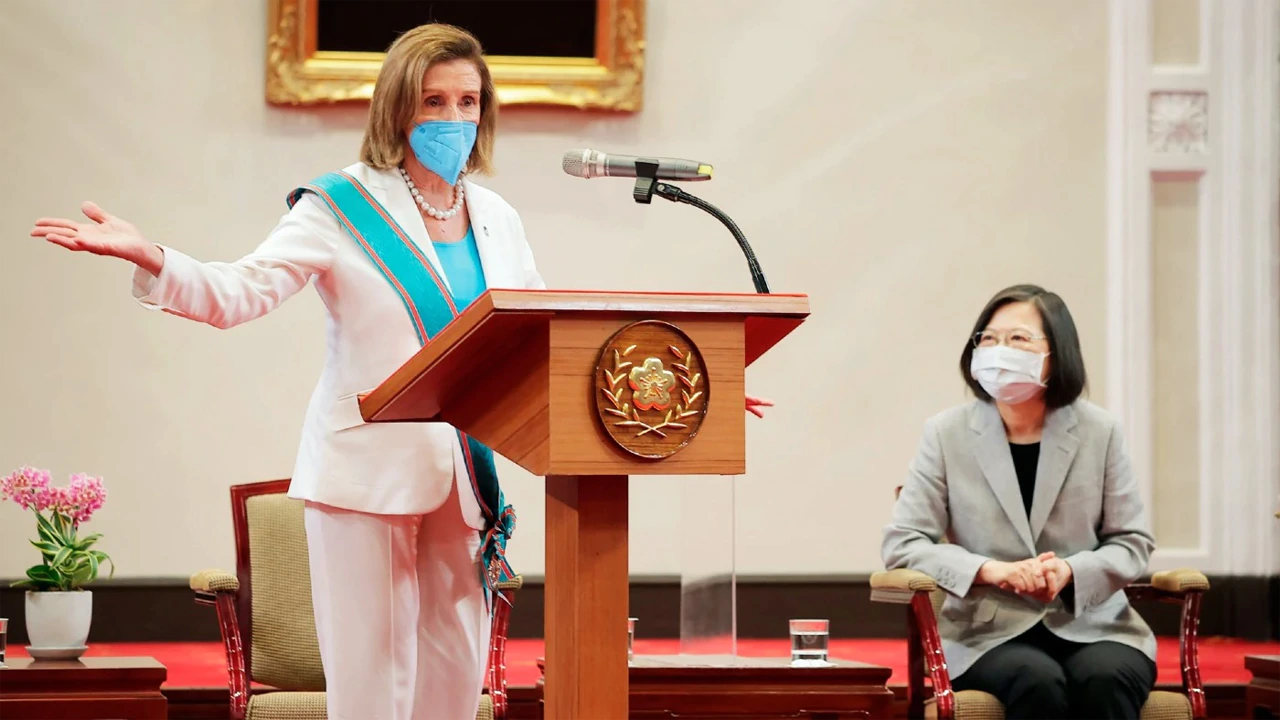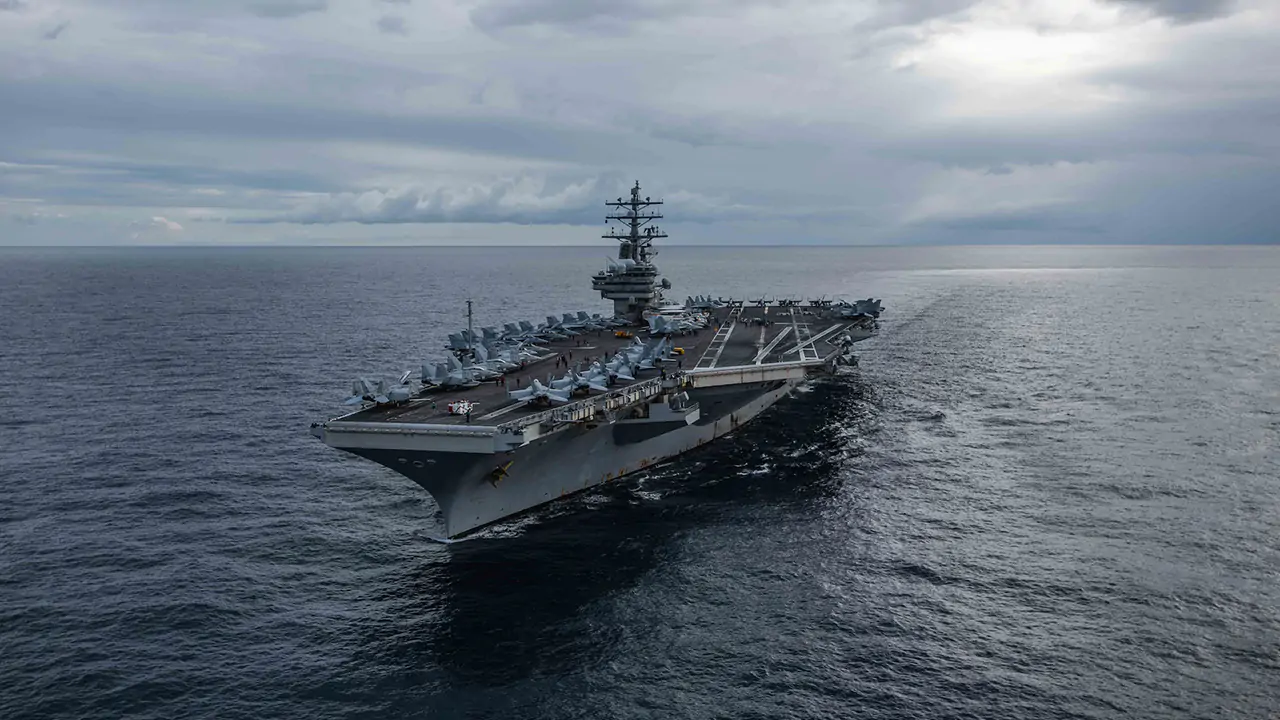Taiwan is a country in East Asia, at the junction of the East and South China Seas in the northwestern Pacific Ocean.
Since the World War II, the second phase of the Chinese Civil War (1945–1949), and the Cold War, Taiwan has been involved in various controversies regarding its political status.
Due to its status, the country and its region experiences huge tension following Nancy Pelosi's visit to Taipei.
Pelosi's visit to Taiwan was not intended to change the status quo for the island or anything, but only to maintain peace in the Taiwan Strait, which separates Taiwan and mainland China. She praised Taiwan’s democracy and its success in technology and business, while criticizing the Chinese violations of trade agreements, weapons proliferation and human rights problems, including its treatment of its Muslim Uyghur minority.
"If we do not speak out for human rights in China because of commercial interests, we lose all moral authority to speak out about human rights any place in the world,” Pelosi said in a news conference. “China has some contradictions — some progress in terms of lifting people up, some horrible things happening in terms of the Uyghurs. In fact, it’s been labeled a genocide."

The trip to Taiwan is personal for Pelosi, who has long rallied against Chinese human rights issues that stretch back decades.
As soon as the Chinese knew that the U.S. House of Representatives Speaker is visiting Taiwan, amid its intensifying warnings, Beijing is furious.
Chinese jets were also found flying close to the median line dividing the sensitive waterway between China and Taiwan, with several Chinese warships remained close.
China even fired missiles around Taiwan as part of a series of "unprecedented military drills," with the Chinese public and Beijing said that the trip to the self-ruled island it regards as its territory infringed its sovereignty.
The U.S. anticipated this, as four of its warships, including the USS Ronald Reagan nuclear-powered aircraft carrier, were positioned in waters close to Taiwan, in what the officials said as "routine" deployments.
"There are certain insecurities on the part of the president of China as to his own political situation that he’s rattling a saber, I don’t know," Pelosi said.
"But it doesn’t really matter," she continued. "What matters to us is that we salute the successes of Taiwan, we work together for the security of Taiwan and we just take great lessons from the democracy of Taiwan."
While in the waters the military on both sides were on standby and high alert, sooner than later, people who work behind their screens wage their own wars.
On August 3rd, in some branches of 7-Eleven convenience stores in Taiwan, the television screens behind cashiers suddenly switched to display the words: "Warmonger Pelosi, get out of Taiwan!"

The largest 24-hour convenience store chain in Taiwan became victim of what the Taiwanese authorities call an unprecedented amount of cyberattacks.
And not only that, as hackers also hacked a number of government websites, including the one belonging to the presidential office, foreign and defense ministries, as well as infrastructure such as screens at the Taiwan Taoyuan International Airport, the Taiwan Railways Administration, and the Taiwan Power Company.
They were all protesting against Pelosi's visit.
According to the authorities, the websites saw a surge in web traffic caused by Distributed Denial-of-Service (DDoS) attacks that were 23 times the normal rate.
According to Taiwan's digital minister Audrey Tang, the volume of cyberattacks on Taiwan government units and infrastructures, before and after Pelosi's arrival, surpassed 15,000 gigabits.
This number is about 23 times higher than the previous daily record.
While the authorities has not directly blamed the Chinese for the attacks, but they suggest that the attacks originate from both China and Russia.
Lo Ping-cheng, Taiwan Cabinet spokesman, said that the government had stepped up security at key infrastructure including power plants and airports and increased the cybersecurity alertness level across government offices.
Fortunately, the hackers hacked their ways into the websites and infrastructures only to deliver their message, not to create damage.
"Government departments have been very careful. In these past few days, in terms of public security, we have set up a three-tier government security and communication mechanism, it is already tough and defensive enough so these adaptations have been beneficial," Lo Ping-cheng said.
This is why researchers suggest that the cyberattacks against Taiwanese government websites and infrastructures after Pelosi's visit were likely launched by activist hackers rather than the Chinese government-backed hackers.
However, soon after, hacker group APT 27, which has been accused by Western authorities for being a Chinese state-sponsored group, claimed responsibility for the cyberattacks on Taiwan, saying on a YouTube video that they were done to protest how Pelosi had defied China's warnings with her visit.
The hacker group also claimed that it had shut down 60,000 internet-connected devices in Taiwan.

Nancy Pelosi, is the highest-ranking U.S. official since 1997 to visit the self-governing island that China considers its own territory.
Due to the tension, the Pentagon has directed the aircraft carrier USS Ronald Reagan that is based in Japan and operates in the Western Pacific, to remain in the area near Taiwan "to monitor the situation."
Before this, the 333 meters-long supercarrier has sailed in the East China and Philippine seas.
"We will not seek, nor do we want, a crisis," said National Security Council spokesperson John Kirby. "At the same time, we will not be deterred from operating in the seas and the skies of the Western Pacific."
At the same time, the U.S. government has also delayed a planned test of a Minuteman III intercontinental ballistic missile.
The test had been scheduled at Vandenberg Air Force Base in California, and it has been postponed temporarily to avoid increasing tensions.
“As China engages in destabilizing military exercises around Taiwan, the United States is demonstrating instead the behavior of a responsible nuclear power, by reducing the risks of miscalculation and misperception," Kirby said.